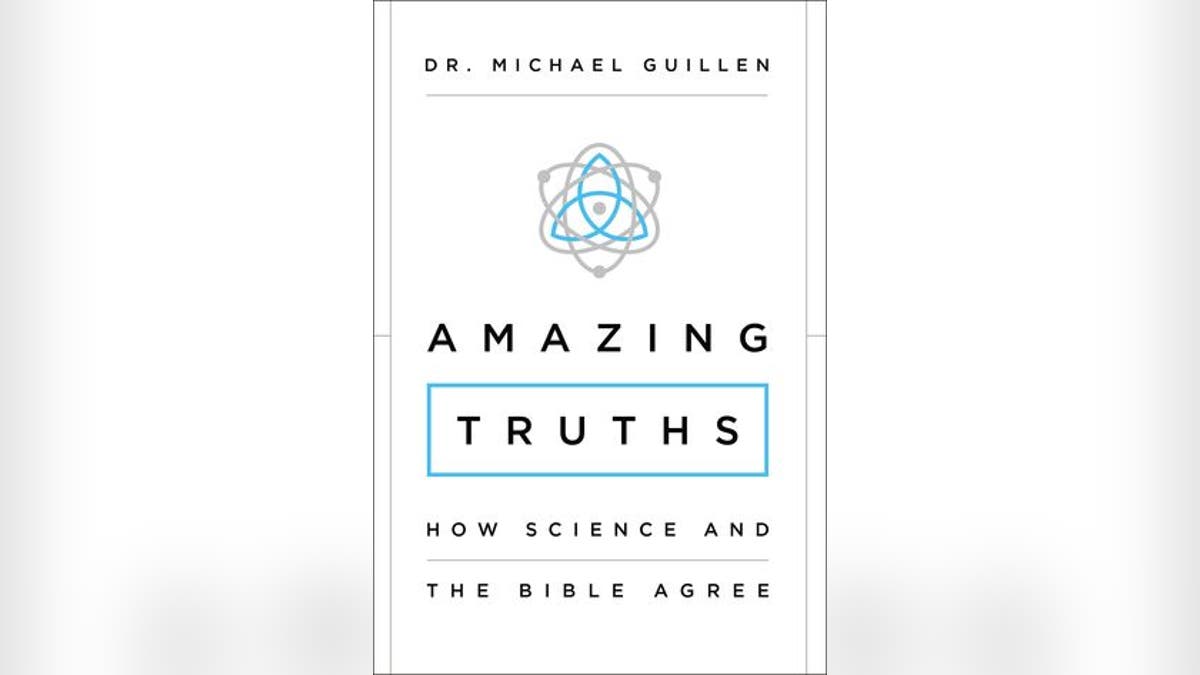
Many people today see science and the Bible as a bitterly divorced couple and feel forced to take sides. It’s a real tragedy because notwithstanding the impression created by extremists on both sides, the two are in fact remarkably harmonious.
As a theoretical physicist and Christian, I have discovered at least ten fundamental truths that are affirmed by both modern science and ancient Scripture.
Does that surprise you? Are you skeptical? If you are, I don’t blame you: all of us are heavily influenced by media that relish playing up people arguing about the age of the earth, the role of evolution in our planet’s natural history, the reliability of science and so forth.
Lost in the noise and fury of these shouting matches are the voices of reason – and faith. Ratio et fides – what I call IQ and SQ (spiritual quotient) – operating peaceably and powerfully together, as they do in my own life.
Chief among the ten truths that comprise the astonishing concurrence between science and the Bible is this one: Truth – absolute, objective truth – exists. In today’s post-modern world, this is no trivial consensus. It is huge, placing science and the Bible squarely against pop relativism.
An illustration of science’s belief in absolute truth is simple: if you and I jump from a tall building, we will both fall at roughly the same rate – 32 feet per second per second. There’s not one gravitational truth for you and another for me. There is only one law governing the behavior of gravity throughout the universe, it being a cornerstone of 21st-century physics.
Likewise, according to the Bible, there is not one god for you and another for me. There is only one God in the universe, he being the one described in Scripture.
Whether you believe the Bible to be the inspired word of God or merely a collection of myths and fables is irrelevant to this discussion. The point is, when it comes to arguing for the existence of absolute truth, science and the Bible are not at odds. They are on the very same side.
The same accord exists for revelations concerning the behavior of time; hidden realities; logic and proof; the supernatural oddness of light; the very existence of our universe; the craziness of life; and the uniqueness of the human animal. In each instance, science and the Bible uphold identical truths.
What does this all mean to you and me? Everything. For starters, you should not be misled into believing that science advances at the expense of the Bible. Or that the Bible is outdated and irrelevant because it is ancient. Or that reason and progress are the enemies of faith, and vice versa.
“Faith and reason are like two wings on which the human spirit rises to the contemplation of truth.” Those are the words of Pope John Paul II, and I agree with them. In a lifetime spent sincerely seeking out what is true and trustworthy, I have discovered that relying on logic alone doesn’t cut it. As Charles F. Kettering, the famous engineer and head of research at General Motors once observed, “Logic is an organized way of going wrong with confidence.”
Faith is required to make sense of life – faith in something or someone for which we cannot provide any “proof.” Some elect to have faith ultimately in themselves, others in the latest faddish ideas. I choose to have faith in the Bible – and, happily, in doing so, I don’t have to give up having faith in science as well.








































